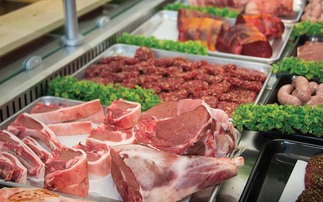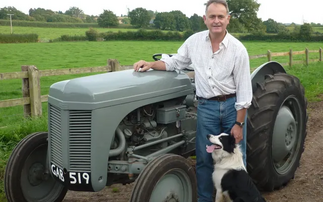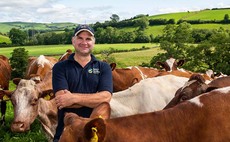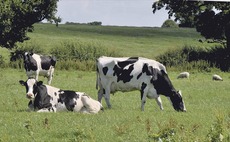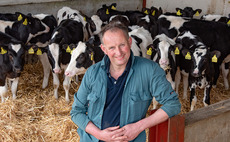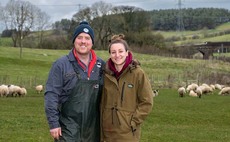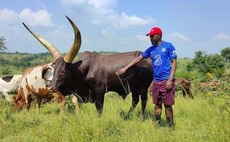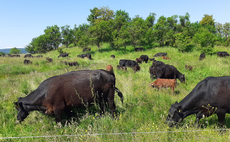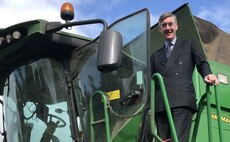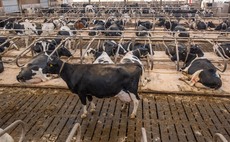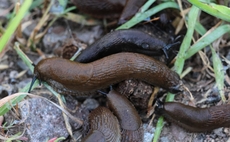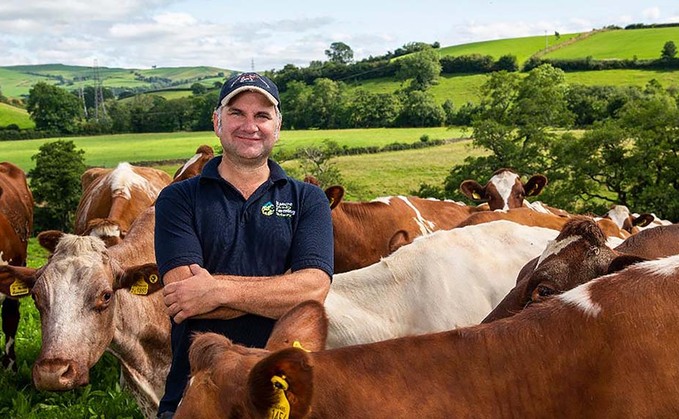
Spring is still stuttering and stumbling its way into the year, a nice couple of days over the Easter weekend has been followed by a wet and cold Monday, when thoughts of turning a few groups of youngstock have been banished for the time being.
It looks like I will have to keep shovelling and scraping for a bit longer yet. Grass growth has just about set off enough for us to turn the milk cows out for day times at least, and they are always there at the gate waiting to set off down to their grazing.
Milk did go up briefly, but it has settled back down now, although that is probably due to the fact that I have cut their meal out of the diet completely after it ran out sooner than expected. Nothing like a £680/t winter price tag to sharpen up the ration for spring.
I reckon we are about two weeks behind last year; I know this because I made the mistake of looking at my memories on Instagram.
Everywhere looked lush and we had the majority of stock outside, hedges looked a long way forward as well with white blackthorn blossom lining the boundaries of each field.
We have managed to get some spring work done, but there is still about a quarter of the meadows to spread with slurry and a big proportion of rolling to do. We have, however, faired better with fencing.
The hedges laid over winter have been double fenced to keep the cows from eating the tender shoots of the new growth.
Cattle are great at browsing hedges, and the extra minerals they can get from them are a real benefit, including self-medication for ailments and pain relief, but they do need a year or two to re-establish themselves straight after hedgelaying.
A new fence has been put down the side of a cow track to keep the cows from going into the beck for water. The beck has always been used for drinking for our dairy herd, but things are different now than they were 100 years ago.
Back then they wouldve had about 15-20 milking at any one time, whereas now we have six to seven times that and thats a lot more feet, from heavier cows, poaching up the bank of the beck and mucking in the water, which is what they always seem to do each time they drink.
We are still using the beck water for the cows, but rather than them walking for the water, we are pumping it to them via a solar powered system into 2,000 litre troughs.
We have two of these systems now and they have changed the way we manage the farm; cows are no longer walking long distances from their grazing area to the beck and are therefore saving huge amounts of energy.
It also means that we can divide areas up easier, which allows for better regrowth and a better grass yield across the grazing platform.
Then there is the environmental benefit too, and it is huge, no poached banks with grass and scrub allowed to grow tall which leads to better shading of the water, flood mitigation and nutrient filtration through the longer grasses, no muck or soil in the beck water, win win win.
If you are pondering whether to do this either through a grant or out of the farms budget, I recommend you get on and do it.
A decade ago, this probably wouldnt have been possible, but technology has allowed us to benefit the cows, the land and the wildlife in and around the beck and I reckon that is pretty damn awesome.













